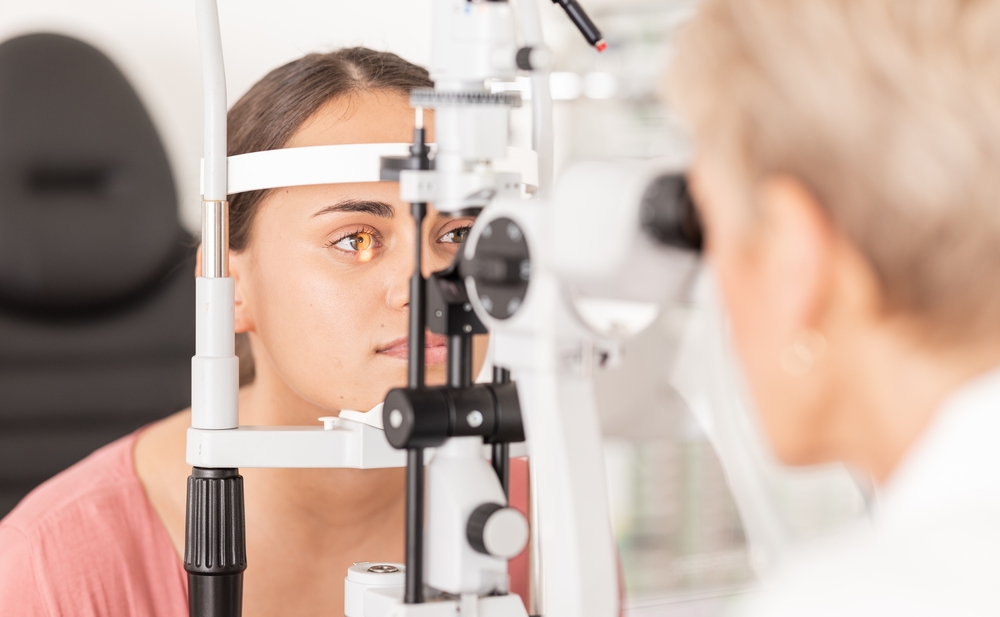
Dry eye is a common condition that happens when tears fail to provide necessary lubrication. Tears can be unstable or inadequate for different reasons. Producing poor-quality tears or tears that may not be enough can lead to inflammation or damage to the eye surface.
Dry eyes can be very uncomfortable and can cause stinging or burning. Most people experience dry eyes in certain environments or situations, such as in an air-conditioned room or an airplane.
The Aging Process
Dry eye condition is common among senior adults above 50 years, especially women. The aging process results in reduced tear production.
If your dry eye is due to aging, your doctor may recommend using artificial tears regularly. It usually helps to increase eye moisture, combating the issue of chronic dryness.
Certain Medications
Certain medications can cause dry eye by affecting the tear composition. Tears are made of water, oil, and mucus. Some medications affect mucus production, contributing to a dry eye condition, and include antidepressants, antihistamines, beta-blockers, and diuretics. Reducing the dosage or changing the medications can help relieve eye dryness.
Getting Laser Surgery
Some patients develop dry eyes after undergoing laser vision correction surgery. During surgery, some nerves in the cornea are cut, resulting in the production of fewer tears.
In most cases, the condition is temporary, resolving after several days or weeks. During the healing period, using lubricating eye drops can help keep the eyes moist.
Hormonal Changes
Some women experience dry eye during menopause or pregnancy. Hormones play a crucial role in the production of tears. Dry eye can also be a result of using birth control pills.
If you have dry eyes due to hormonal imbalance, talk to your doctor about eye drops to reduce irritation and dryness. In most cases, hormone replacement therapy does not help with dry eye.
Digital Device Use
Computers or digital devices can cause eyestrain, headaches, and dry eyes. Studies show that people blink less frequently when using computer devices. It causes tears to evaporate much faster, leaving the eyes dry.
Remembering to blink frequently and using artificial tears can help keep the eyes wet, preventing irritation and dryness. Taking frequent breaks also helps.
Vitamin A Deficiency
Diet plays a vital role in eye health. Vitamin A deficiency can cause dry eye and other vision issues, such as night blindness. Increasing your intake of vitamins can help improve your eye health, reducing dry eye symptoms.
Vitamin A-rich foods include fish, eggs, spinach, carrots, peppers, and broccoli. Your doctor can recommend ways to increase your vitamin intake.
Contact Lenses
If you have been wearing contact lenses for years, you have a high risk of developing dry eye. Long-term contact lens use affects the eyes due to the limited oxygen that reaches the eyes and failing to receive adequate lubrication.
Switching to eyeglasses or specialty contact lenses can relieve dry eye. The special contact lenses are designed to prevent dry eye by retaining moisture.
Other causes of dry eye include wind exposure, allergies, and autoimmune conditions such as Sjogren’s syndrome, lupus, arthritis, and diabetes. Medications used to treat various health conditions can cause dry eye symptoms. Blepharitis is an inner eyelid condition that can cause dry eye. Low humidity, smoke, and dehydration can worsen dry eye symptoms.
For more about the causes of dry eye, visit Eye Carumba Optometry at our office in San Francisco, California. Call 415.360.6900 to book an appointment today.







